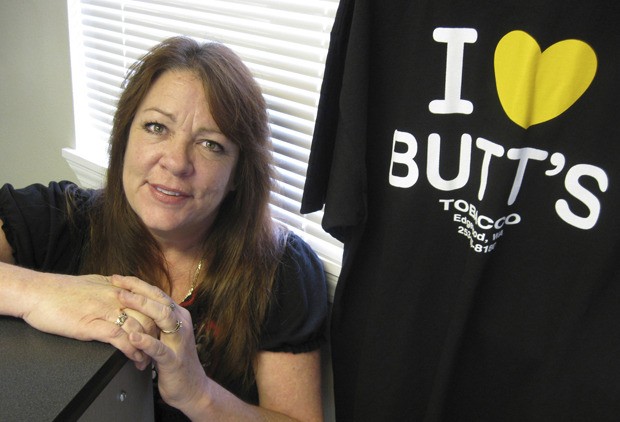Less than a year ago, the RYO Filling Station cigarette rolling machines seemed to Jean Wood like golden tickets to financial stability.
Now, thanks to a recent federal law that has made it illegal for Wood to sell cigarettes rolled in the machines without a manufacturer’s license, the two $35,000 machines are useless hunks of metal.
“Nobody wants these machines now,” Wood said. “I’m sitting on about $200,000 worth of inventory I can’t do anything with.”
Wood said she and her husband used money from his pension fund to finance the opening of Butts Tobacco, with locations in Auburn and Edgewood.
The business model seemed simple, even foolproof.
Centered on the RYO Filling Station machine – each capable of spitting out 200 cigarettes made from pipe tobacco and pre-made tubes in about 10 minutes – the roll-your-own machines offered smokers a way around the high cost of pre-made cigarettes, which typically cost about $70 a carton (200 cigarettes).
Paying anywhere from $21 to $35 for tobacco, tubes and machine rental, customers would use the machines to roll a carton of cigarettes. The reduced prices would come primarily from lower taxes, as the state taxes pipe tobacco at lower rates.
The idea that she could be on the verge of going out of business less than a year later was never part of Wood’s plan.
Yes, Wood said, there were rumblings of possible challenges from big tobacco at the start, but she insists that the machine’s distributor, RYO Machines, LLC out of Girard, Ohio, reassured her. Wood said RYO promised it would help back opposition to any regulations against the roll-your-own industry.
“We knew possibly something could happen,” she said. “But the distributers of the machines said they would fight anything (in court).”
Since the July 6 passage of the law designating RYO businesses as manufacturers, however, Wood said she has been on her own.
“They’re (RYO Machines) just bagging it,” she said. “They’re spent financially.”
According to RYO Machines, which said it has sold more than 1,000 of the Filling Station machines, the company is no longer providing support for them.
“We are disappointed in the recent legislative initiative to limit our business model and hope that many of you successfully transition into permitted manufacturers under the new law,” President Phil Accordino said in a statement on the company’s Web site.
Wood has already closed the doors at her Edgewood store. Meanwhile, her Auburn location is barely getting by selling supplies for roll-your-own cigarettes.
“I’m doing $200 a day if I’m lucky here, just selling tubes, tobacco and little hand-rolling machines,” she said. “People are just doing the same thing I was doing with these little machines.”
Wood said there is talk of obtaining an injunction against the law, but without the financial backing of RYO Machines, she’s skeptical it can succeed.
For now, she’s focused on just trying to squeak by until her lease expires in October.
“I’m sitting with one building completely shut down and the other struggling,” Wood said. “I’m going downhill fast.”



